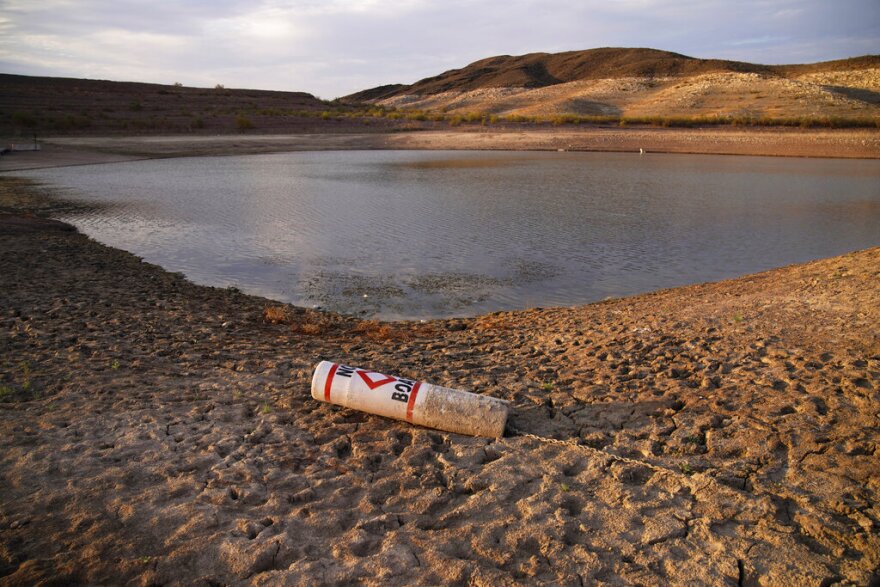Last week water officials from Nevada and two other Colorado River states said they would reduce their draws from the ailing waterway.
Now they need to make that happen.
Water leaders in Nevada, Arizona, and California signed an agreement to voluntarily reduce their take from the Colorado River to help stave off mandatory cuts in the upcoming years.
The signing took place at the Colorado River Water Users Association annual meeting in Las Vegas, where policy is set to manage the dwindling river that serves 40 million people.
The newest agreement, known as the “500+ Plan,” requires the states to cut 500,000 acre-feet in 2022 and 2023, or enough to serve 1 million to 1.5 million households annually, depending on water usage and conservation in the area.
"Folks who have followed the river for years, they describe this as essentially a Band-Aid, and there needs to be a lot more done, said Nate Hegyi, Nevada reporter for the Mountain West News Bureau.
Hegyi said that efforts being put in place, such as additional restrictions on Las Vegas lawns and evaporative cooling, are precursors for discussions among the states and federal government on reforming river management policy, something set to start next year.
Upriver in Utah, officials are looking for additional water sources to cope with the state's growth.
"There's always this tension between upper basin states and lower basin states because Utah and other (upper basin) states are still wanting to develop, they see that they haven't used their full allotment of water, and they want to be able to use even more of it," Lexi Peery, a reporter for KUER in St. George, Utah.
While the outlook on the river is grim, both reporters said there was a greater spirit of cooperation at the conference, including a more welcoming attitude toward native communities.
"There were more tribal leaders at this conference than there had been in the past," Peery told State of Nevada. "Tribal leaders, by the way, have some of the oldest rights to the Colorado River."
Nate Hegyi, reporter, Mountain West News Bureau; Lexi Peery, reporter, KUER








